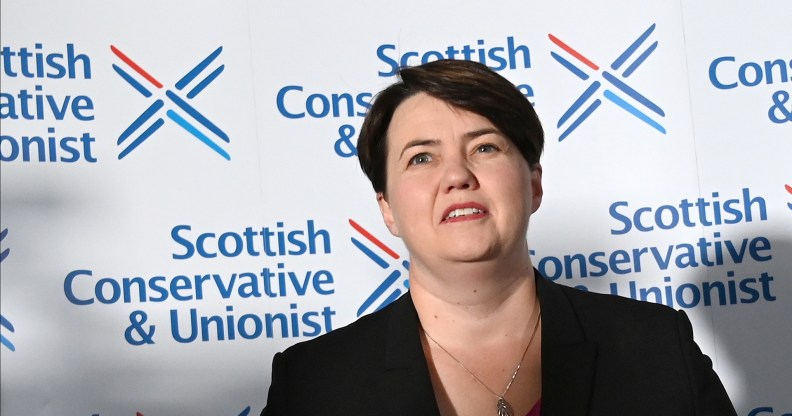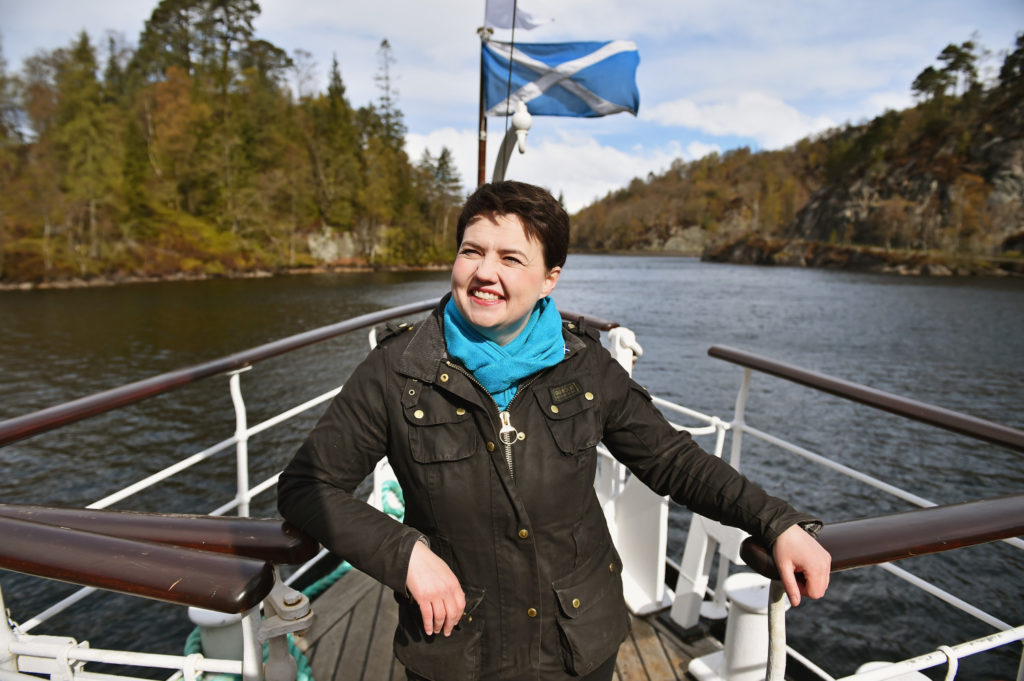Ruth Davidson poised for House of Lords despite furious attacks on Boris Johnson

Former Scottish Conservative leader Ruth Davidson. (Ken Jack/Getty)
British prime minister Boris Johnson is poised to nominate Ruth Davidson, the former Conservative Party leader in Scotland, as a House of Lords peer.
Despite the lawmaker sparring with the premier, the 41-year-old may join the ranks of her predecessor Baroness Goldie, The Daily Mirror reported today.
The Edinburgh Central member of Scottish Parliament stepped down August last year after almost eight years, citing a focus on family.
Ruth Davidson quit leader role in 2019.
Although the nomination and vetting process is not complete for the upper house, Ruth Davidson’s unexpected nomination isn’t necessarily concrete.
With the 2021 Holyrood elections ahead, she would have to depart from the Scottish Parliament earlier and spark a by-election, or hold a dual mandate until next Spring.

(Jeff J Mitchell/Getty Images)
Moreover, tradition states the she must be in the lower House of Commons if she wanted to pursue leadership again, meaning she would have to resign and contest a Commons seat before she could stand.
Though, her nomination comes after she routinely traded barbs with her English equivalent. She delivered a stinging attack against Johnson after he expelled 21 Tory rebel MPs in September.
But the blue-on-blue attacks she waged across 2019 were nothing novel. In 2016, she launched a salvos against Johnson and then energy minster Andrea Leadsom.
“It’s not the Boris show,” she said, “Boris can you name me one country in the world that has said it would give us a better deal if we come out of the EU?”
Ruth Davidson departed the top seat amid the odyssey of Brexit.
As bile brewed among parties during the vicious to-and-throw of how to depart from the European Union, Davidson, a Remainer, called it quits.
Her stepping down brought an end to the party’s first openly gay leadership.
Scotland’s relationship with the UK is shaken by Brexit.
Boris Johnson’s position in Scotland is currently rattled by Brexit and the country’s own pro-independence government.
Scottish lawmakers argue that while Britain as a whole narrowly voted to divorce the European Union in 2016, voters in Scotland largely voted to remain.
The choice to depart the bloc has up-ended once settled relations across the UK, with campaigns for independence gathering steam across not only Scotland, but Wales, too.
Northern Ireland, meanwhile, is musing a unification with Ireland.
With a winding road ahead of throne trade negotiations ahead, Scottish politicians are threatening to renew its drive for independence.
The Edinburgh-based Holyrood legislature voted to call for a second referendum in January.

